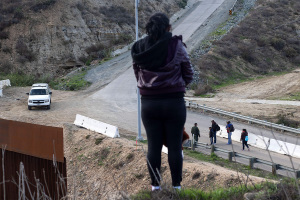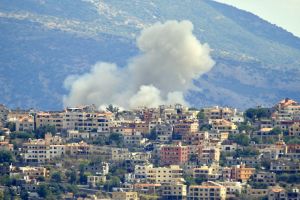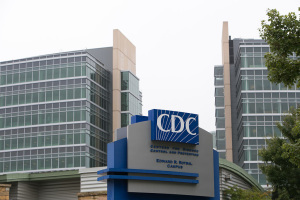Peace in Sudan Possible with Church Participation, Forum Leaders Say
“Vision for a peaceful Sudan is not based on blind expectations,”
The “Peace of Sudan” forum, held during the World Council of Churches International Affairs and Advocacy Week in New York, Nov. 11-15, elucidated a hopeful peace amid the decades of violence in the war torn nation.
"I do believe that the Sudan is positively heading towards a peace which is not likely to be reversed," said Dr Francis Deng, director of the Centre for Displacement Studies, Paul H. Nitze School of Advanced International Studies, Johns Hopkins University, USA. "Significant progress is being made and we are heading in the right direction," he said.
Deng, who claimed that the “vision for a peaceful Sudan is not based on blind expectations,” said the underlying conflict, is one of national identity.
"The underlying element of the conflict is a crisis of national identity which stems from geographic, religious, and cultural differences, " Deng said. Those differences divided the predominantly Arab and Muslim north from the predominantly African and Christian south - a process that began during the British colonial period and accelerated in the post-colonial period. Over time, he added, the differences grew more intense and more stratified.
"The British helped entrench the dualism of the north and south, and that duality continued in the post-colonial period, when government leaders in the north sought to unify the country through assimilation," Deng said.
Although the Sudan was not initially divided along religious lines, northern leaders hoping to consolidate their own power after independence "realized that they could not appeal to divisions based on ethnicity or race, so they intensified the divisions along religious lines".
With scant attention from most of the world, violence and conflict escalated until an end of hostilities was brokered in the early 1970s. Yet despite a relatively peaceful respite following the Addis Ababa Agreement in 1972, "the agreement did not solve the problem of national identity," Deng reported. At the time, government leaders in the north assumed that the south had been pacified, but resistance there continued to grow, and fighting resumed in the early 1980s.
The growing resistance movements of the 1980s "were not seeking to break away, but rather to bring about a new redefinition of the Sudan where everyone - especially in the south - could participate in the life of the nation" Deng said. For nearly a decade during the 1990s, peace efforts stalled, violence and human rights abuses increased, and the fierce religious divisions of the nation worsened.
Only when African neighbors began to get involved in the 1990s did northern leaders get serious about brokering a new peace agreement, Deng said. "During the same period, the US seemed to ignore Sudan, as if the problems weren’t important to their strategic interests," he added. "That posture began to change after the attacks on 11 September, 2001 and the subsequent US declaration of war against global terror."
"Since Sudan is nestled between most of Africa and the Middle East, the US began to perceive its strategic importance in the region and, noting that Osama Bin Laden once lived there, was probably concerned that the country might become a source of international terrorism", Deng added.
"I was very pleased when President Bush appointed former US Senator John Danforth as a special envoy in 2000 to help negotiate a peace settlement," Deng said. "The leadership of the US is needed to help end the war, and I believe that US efforts could be instrumental in securing the peace."
Nonetheless, said Deng, the peace negotiators may face “monumental challenges in their efforts.
"Will the government and the SPLA/M be able to shift from a war orientation to successful governing?" he asked. "How do you reconstruct communities and social structures that have been totally shattered during the war?"
Deng believes peaceful solutions will not succeed succeed "unless legitimate grievances are addressed, and we address the root causes of the Sudanese conflict. Often the conflicts are symptoms of much deeper problems and inequities." Among the issues that must be addressed, Deng includes personal and national security, poverty and marginalization, and concerns about health - especially the problem of HIV/AIDS, "that has ravaged portions of the country," he reported.
"In such a tenuous environment, the role of the churches is very important in providing alternative sources of support, education, and assistance, " Deng emphasized.
The Norwegian Church Aid’s regional Representative for Eastern Africa and chair of Church Ecumenical Action in Sudan, believes the churches must play a main role in bringing for the desired peace.
"The churches' most important role has possibly been facilitating people-to-people peace dialogues," said Stein Villumstad "These grassroots processes have been essential in preparing for formal peace talks on higher levels."
"The coherence between local action and international advocacy through the Sudan Ecumenical Forum has been another significant contribution to the peace process,” he added.
Villumstad traced the complex history of ecumenical partnerships and cooperation within the Sudan, noting that churches there were often divided by the regional and civil conflicts over the past several decades. He urged the WCC and other ecumenical partners to continue, "accompanying" efforts as peace negotiations continue.
"The churches of the Sudan will face significant challenges after any peace accord," said Polycarp Ochilo, Service and Witness coordinator with the All African Council of Churches. "Forgiveness and reconciliation will be very important in a post-war Sudan, and the churches will have to lead the way."
Ochilio also said that Sudanese churches would have to provide leadership in civic education, the reintegration of displaced peoples, reconstruction of civil society, and the promotion of human rights and restoration of human dignity. "In the future, beyond mere rhetoric, the churches of the Sudan will need accompaniment from ecumenical partners," he asserted.
"And most of all, the Sudanese will need your prayers."




























